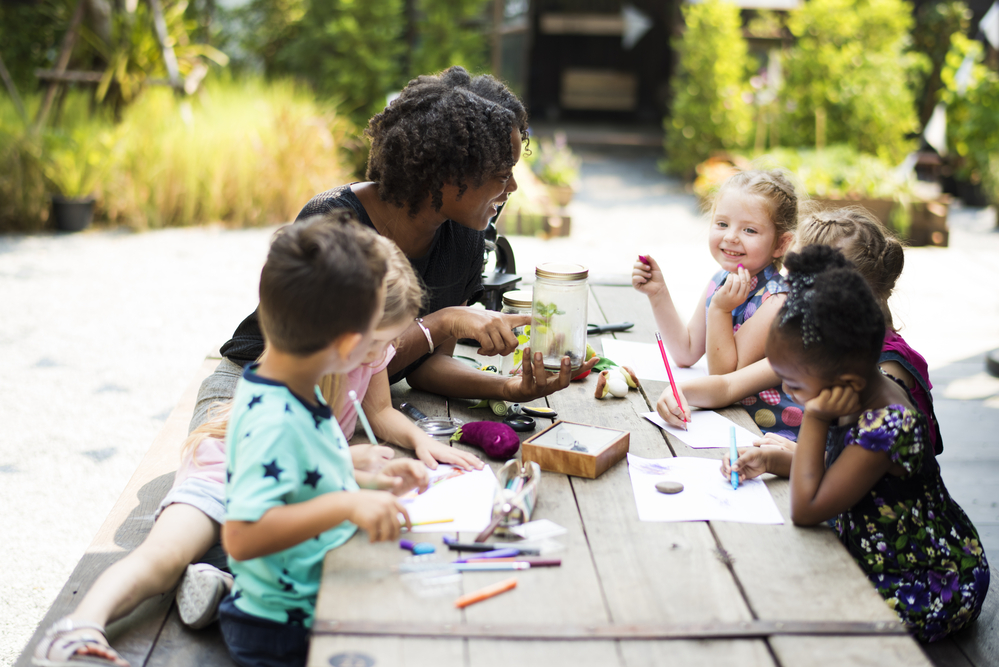As the concept of social-emotional learning (SEL) takes root within the modern landscape of education, administrators, teachers and other staff members are actively applying practices within the classroom to help children develop relevant skills. However, their work can’t occur in a vacuum if is to create lasting impact.
Guardians, families, and even communities as a whole are critical partners when it comes to social and emotional learning. Not only do they model desirable attitudes and behaviors but also provide real-world opportunities for students to develop their own.
Refining SEL Out of School
There is a direct link between social and emotional skills development and academic success. In conjunction with absorbing new knowledge, it’s important for children to learn a myriad of soft skills, such as how to set and achieve goals; how to collaborate with others; how to articulate a vision; how to lose—and win—graciously; and how to cope with challenging or overwhelming emotions.
Here is a closer look at how community organizations, parents, and other guardians can help young people learn, refine, and apply SEL outside of the classroom:
1. Playing Games at Home
Board games, card games, and other interactive activities are an ideal way for children to hone academic skills, such as counting and spelling, as well as practice their social and emotional skills. Through the course of these group interactions, parents and other family members can help children practice listening to instructions, following rules, working with teammates, and being gracious to others regardless of the outcome. In today’s technology-driven world, it’s also valuable to demonstrate how to have fun and interact with others when not using electronics.
2. After-School Programming
Community organizations can partner directly with schools at all levels to offer extracurricular activities throughout the day and in afterschool programs. Children need opportunities to explore the world in a new way and grow holistically. Athletic teams, drama and music clubs, and arts and crafts programs all provide such opportunities. Community-based nonprofit organizations and businesses can support these activities financially or by providing in-kind donations of time, labor, supplies, and facility use. Although sponsorship is a less direct way of fostering SEL, it is crucial to sustaining these meaningful activities and supporting those doing the boots-on-the-ground work.
3. Providing Mentorship
Another way you can advocate for SEL at school is by serving as a mentor, either one-on-one or for a specific activity. A few examples of mentoring programs include Big Brothers Big Sisters of America, Lunch Buddy Mentoring Program, and other local initiatives. Such organizations rely on regular, consistent participation from community members to remain impactful. It doesn’t require a huge time commitment to mentor, but the social, emotional, and academic benefits for young people are numerous. Additionally, you can donate time by volunteering for a specific program, field trip, or school event. Simply having adults around provides children with role models and also reinforces the idea that they are part of a larger community whose health relies on every person contributing what they can.
4. Offering Internships
SEL is less of a focus at the middle- and high-school level than it is for kindergarteners through fifth-graders. However, the need for continued social and emotional skills development doesn’t stop when children get to sixth grade. They simply may be ready for a new application. For example, young people need to acquire an understanding of the attitudes and behaviors expected of them in real-world situations, such as on the job or when volunteering. Local businesses and organizations can partner with school districts to create internship programs suitable for children of different ages, or even just ensure they are offering kids a way to meet the community service hours required by their school. In order for these programs to be meaningful in terms of SEL development, school districts should provide “guidelines, training and technical support to ensure that schools and their partners recognize common goals, adopt aligned frameworks and language for SEL, and calibrate on adult behaviors that appropriately model and reinforce SEL for students,” according to the Collaborative for Academic, Social, and Emotional Learning (CASEL). At the end of the day, every interaction is a learning experience and an opportunity to practice social and emotional skills.
Helping Communities Connect and Collaborate
School is a central part of a young person’s world, but learning starts at home and is further reinforced by the experiences they have in other social environments. Family and community partnerships are necessary to build bridges for students between school and the real world. Private social networks can serve as a useful tool in cultivating and sustaining connection and collaboration between educators, coaches, family members, and community partners. Go2s is ideal for all types of community groups, providing you with a reliable platform to post messages, coordinate tasks, share files, post videos and pics, and manage group events on calendars, all in one secure social network.

